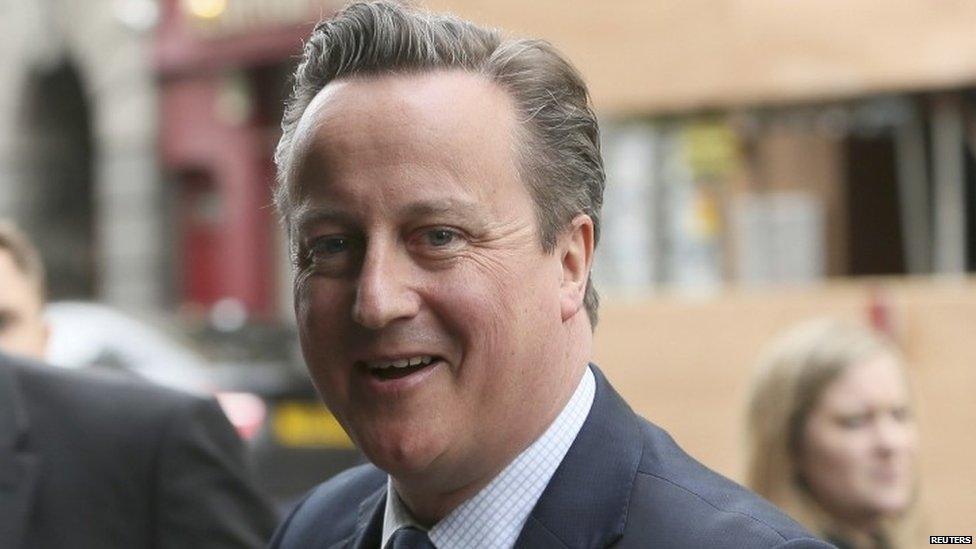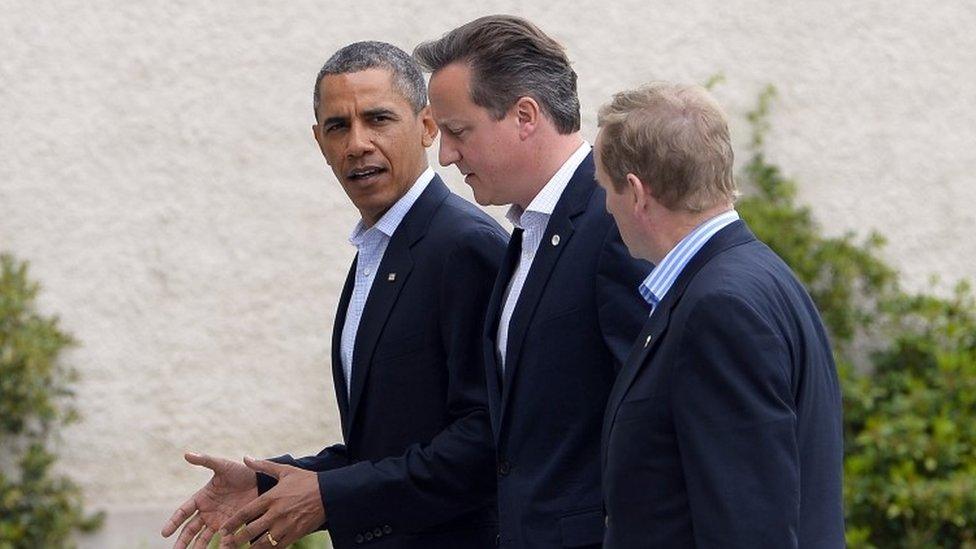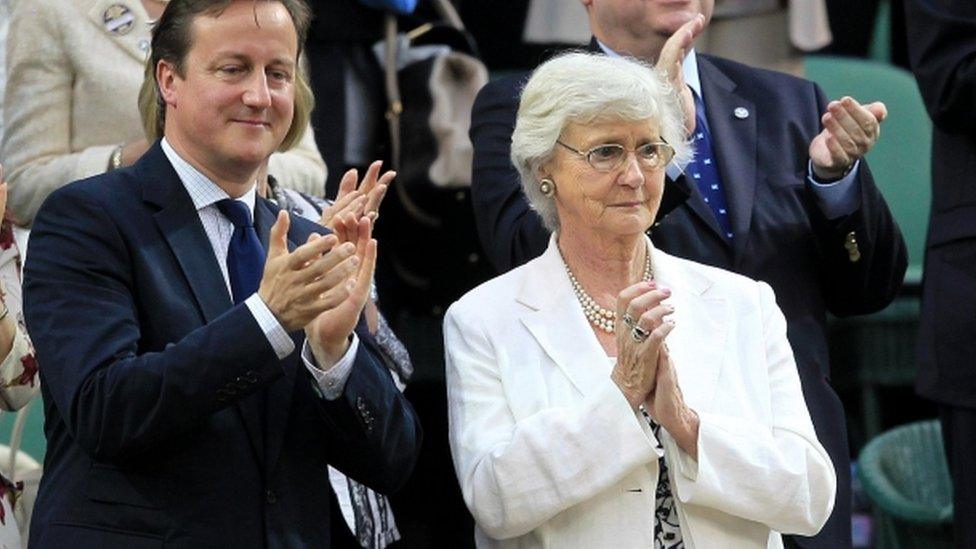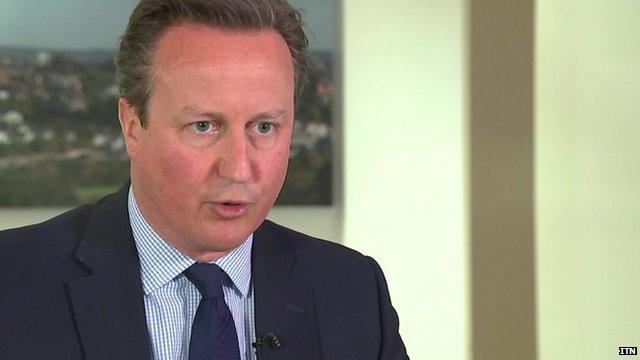In Quotes: What David Cameron has said about tax
- Published

David Cameron has published details of his total earnings since 2009 and the tax paid on them in the wake of a row over profits he made from an offshore investment fund set up by his late father.
He is the first prime minister to make details of his financial affairs public in this way, prompting calls for other politicians to follow suit.
But what has he had to say about tax avoidance - which is legal - and tax evasion - which is illegal - in recent years?

On his own tax affairs
Mr Cameron said publishing his tax returns was "the right thing to do"
April 2012: Sources close to the prime minister said Mr Cameron was "relaxed about the idea of the tax returns of senior cabinet ministers being published - but wants the opportunity to explore how this might work".
January 2015: "I am very relaxed about publishing these things. There's no secrets about my status. I am paid very handsomely as your prime minister and that's my main source of income, and I have a house I used to live in before I moved into Downing Street and I rent that out and I get income from that. I don't have other sources of income. There will be no surprises in terms of my tax affairs."
April 2016: "I will be publishing the information that goes into my tax return, not just for this year but the years gone past because I want to be completely open and transparent about these things. I will be the first prime minister, the first leader of a major political party, to do that and I think it is the right thing to do."

On others' tax arrangements
June 2012: Responding to media coverage of Jimmy Carr's tax arrangements amid claims the comedian was among a number of high-profile figures using legal but aggressive tax avoidance vehicles, Mr Cameron said:
"Frankly some of these schemes where people are parking huge amounts of money offshore and taking loans back to just minimise their tax rates is not morally acceptable.
"Some of these schemes we have seen are quite frankly morally wrong. People work hard, they pay their taxes, they save up to go to one of his shows. They buy the tickets.
"He is taking the money from those tickets and he, as far as I can see, is putting all of that into some very dodgy tax avoiding schemes."

On global tax transparency

June 2013: Announcing that the US, UK and other G8 members had agreed to a series of tax transparency agreements following a summit in Northern Ireland, external, Mr Cameron said:
"Let me commend Britain's NGOs and charities for the campaigning work they have done for years on campaigning against tax secrecy, campaigning for openness, campaigning for transparency in extractive industries.
"This is a cause I have long espoused and have long believed in.
"The declaration says that tax authorities across the world automatically share information, that companies should know who owns them, tax collectors and law enforcers should be able to get this information easily.
"These are really strong commitments that have never been written down in this sort of way and then signed. This is words on a page that the G8 is going to be judged on year after year after year."

On tax havens
David Cameron: "When some businesses don't pay their taxes, it corrodes public trust"
June 2013: Announcing that the UK had reached an agreement with the UK's Overseas Territories and Crown dependencies to sign up to a tax evasion clampdown, Mr Cameron said:
"It is important we are getting our house in order. It is a very positive step forward and it means that Britain's voice in the G8, and campaigning on this issue around the world for proper taxes, proper companies, proper laws... will be stronger."

On moral case for paying tax
June 2013: Speaking at an event, external highlighting the damage that tax evasion does to global trade and developing countries, Mr Cameron said:
"The extraordinary thing about this tax, transparency and trade agenda is that it's not just the right thing for us to do morally it's right for our economies too.
"Because when some businesses don't pay their taxes, it corrodes public trust. When some companies don't play by the rules, that drives more regulation and makes it harder for other businesses to turn a profit...
"It means getting companies to report to tax authorities where they earn their profits and where they pay their tax. It also means transparency about who owns which companies and who benefits from it - so called beneficial ownership.
"Why? Because some people use complicated and fake structures to hide their profits and avoid taxes."

- Published10 April 2016

- Published10 April 2016
- Published7 April 2016
